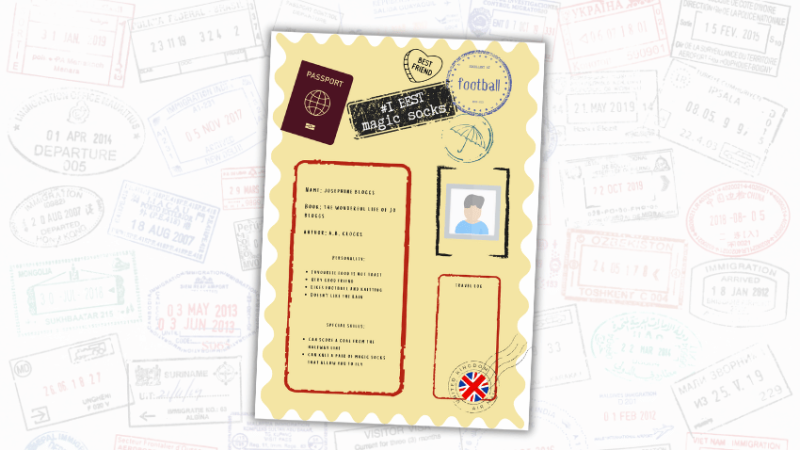A Survivor’s Guide To Ofsted Inspections

Put away the strained and nervous smile, calm those shakes and jitters and wipe that sweaty brow – here’s how to turn an Ofsted visit into an opportunity to grow as a teacher, says Sarah Findlater… “Ofsted is coming.” That simple phrase fills the most confident and experienced of teachers with fear and dread, or […]

Put away the strained and nervous smile, calm those shakes and jitters and wipe that sweaty brow – here’s how to turn an Ofsted visit into an opportunity to grow as a teacher, says Sarah Findlater…
“Ofsted is coming.”
That simple phrase fills the most confident and experienced of teachers with fear and dread, or even an impending sense of doom. While there are many varied reasons for this, it is incredibly sad that we feel this way about inspections. We need to reclaim the process for ourselves and turn inspections back into a developmental and useful process for teachers and schools. And it is only us that can do that. Ofsted itself has done a lot of work to improve its approach and ensure its team are all aligned and focused on how best to facilitate school improvement. Ofsted is there to ensure that we are doing the best we can for the children we have in our classrooms. We need to use inspections as a chance to show off what great things our great students and great teachers do.
Constructive criticism
Let’s be proud of our work. Let’s be confident enough to show off our strengths and humble enough to know what we need to work on. An inspection is your chance to shine; to show what wonderful things you can do.
I am no more an expert than any other hard-working teacher out there – but I’ve taken the time to reflect on my Ofsted experiences in great detail, and it really has helped me to develop my teaching and leadership approach for the better. I would recommend that every teacher who has been through an inspection thinks about what they have gained from the process, rather than just be relieved that it is all over and that they are still alive.
I’ve been through a few Ofsted inspections over the years and have learnt a great deal from every one, all in very different ways. In recent years I have been praised as outstanding in my teaching and leadership of my team, which was just wonderful. I really can say that I enjoyed these inspections, as I knew my team and I had worked so hard to make what we did great. But this is not the story I want to share with you.
Stress and bewilderment
As a fresh-faced NQT English and media teacher at an inner-London school, I had just had a cold, rainy and windy November commute in to work. When I arrived at school looking not dissimilar to a drowned rat, I was quickly followed by an even sorrier arrival – the news that Ofsted was on its way.
I was two months into my NQT year and still very much learning on the job, as most of us poor souls are at that stage, so this news was completely overwhelming. I went into full panic mode – even though, if the truth be known, I had no idea what I was panicking about. I didn’t want to say it to anyone, but I had no clue what ‘Ofsted is coming’ meant in reality. I mean, I knew what Ofsted was, vaguely, but the inspector’s call was a mystery. My PGCE was inspiring, supportive and challenging, but nowhere was there a seminar on Ofsted and what that might be like for me as a new teacher (which, of course, is not the PGCE’s purpose). Nor had I had any CPD sessions on inspection in my school by then. Again, this is not necessarily a bad thing – why should teachers focus on Ofsted rather than teaching and learning? – but regardless, this didn’t help my stress and bewilderment when they chose to arrive two months in. The school was awash with staff rushing around; racing to be the first in the queue for the photocopier; tidying up previously neglected corners of their classrooms; working and reworking their intricate lesson plans; scrawling red pen over every page of every exercise book they could possibly get their hands on; and most importantly, scanning their timetables to see what classes they had over the course of the inspection, praying they would be missed by the inspectors.
And then there was me – still and clueless in the middle of it all.
Winter of discontent
The morning of the inspection. A shaking, dishevelled young teacher in her new work clothes nervously pokes her head round the door of her classroom, as her Year 11s stampede up the stairs after break, wild hair flying from the winter wind.
A teacher from across the hallway whisper-shouts: “They’re on their way up here. Just heard it over the radio”.
The young teacher feels her knees give way beneath her and a layer of sweat forms over her forehead. She scans her class full of overconfident, taller-than-her teenagers, takes a deep breath and walks to the front of the room to begin her well-planned (okay, over-planned) lesson. The inspector did arrive at my door that cold and blustery November morning, and I did fall to bits inside – and, let’s be honest, probably outside too. Suffice to say, I did not do very well in the observation. When I got the feedback from my observer, all it sounded like to me was, ‘You are rubbish.‘
I was absolutely gutted. Although the inspector did say some lovely things, I do not remember them. I was overwhelmed with the things I clearly did wrong.
I’d love to say that’s the end of story, but sadly that’s not the case.
Pulling together
I had another member of staff working in the classroom with me that day (a resource. I remember the inspector saying, that I did not use well enough). It was this lovely soul who continually encouraged me and who built me up after the inspection, along with my wonderful team at the time. It was them who made sure I didn’t turn the whole thing into a horrendous experience that would make me want to run away from teaching. I learnt a lot during that inspection. I learnt how to take feedback and use it to help me improve my teaching and the students’ learning. I learnt how important it is to ask for help when a stressful situation arises in school – and that people will always be willing to come to your aid. I learnt how important it is to pull together as a team when the pressure is on, rather than just trying to get on with it alone.
But most importantly, I learnt that I was not perfect, and that was okay, as long as I was trying hard, working smart, being reflective and willing to learn from my mistakes.
Today’s the day
Ofsted on the way? Here are some last-minute checks before you leave the house…
Look the part It’s amazing how a fresh, well thought-out outfit can make you feel. Have your outfit planned out in advance and check – just in case – that there are no stains or tears.
Put down the pop tart Eat a wholesome, slow-release breakfast like porridge with nuts and fruit, or scrambled eggs on wholemeal toast. Don’t succumb to your craving for a bag of sweets followed by a pain au chocolat.
Two-minute pep talk Take a few moments once you’re ready to leave to gather your thoughts. Have you got everything you need for the day? Have you said you would bring something in for someone else? Have you got your phone? Have your checked your journey route for any issues?
For more more detailed advice on what to do in the event of your school receiving ‘the call’, see Sarah Findlater’s new book, How to Survive an Ofsted Inspection
Sarah Findlater is an assistant principal and English teacher in London. Follow her on Twitter at @msfindlater











